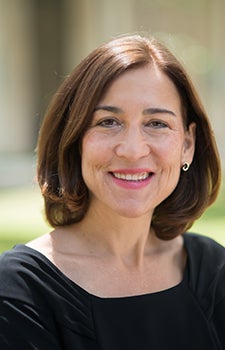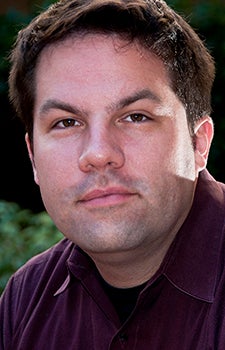
What does the Kavanaugh nomination for Supreme Court Justice mean?
With President Donald Trump’s nomination of Brett Kavanaugh to fill Anthony Kennedy’s seat upon the latter’s departure from the U.S. Supreme Court, Congress must now decide whether or not to confirm the nominee.
Three experts from USC Dornsife College of Letters, Arts and Sciences weigh in on Kavanaugh’s qualifications, what the nomination may mean for the country and what the public can expect to see in the coming weeks, months and even years.
Alison Dundes Renteln, professor of political science, anthropology, public policy and law
Outside the mainstream of American values

Although Judge Brett Kavanaugh has impeccable credentials and academic and community service, those who considered him too partisan to serve as a judge when he was nominated for the U.S. Court of Appeals will surely raise these concerns again. The Senate judiciary committee will be asked to scrutinize his opinions, speeches and correspondence; that role will be crucial to the outcome. While Judge Kavanaugh holds extremely conservative views, whether they are regarded as outside the mainstream of American values like those of Judge Robert Bork remains to be seen.
Cultural hegemony
Justice Kavanaugh would not bring a new perspective to the court. He is a white male who is Catholic and graduated from Yale University and Yale Law School. The worry is that the court will, with Trump appointments, increasingly, fail to protect the rights of minorities. For instance, in the recent travel ban case (Trump v. Hawaii), the court officially overruled Korematsu v. U.S., but then appeared to miss the lesson by upholding the travel ban. If President Trump had wanted to show that he is a leader interested in making real change, he should have appointed the first Asian American to the U.S. Supreme Court.
Possible silver lining
If Judge Kavanaugh is confirmed, the Supreme Court will have another Catholic justice. Insofar as judges may be influenced by their background, this might lead the court to reconsider the constitutionality of the death penalty. As Judge Kavanaugh was a clerk for Justice Kennedy, who was inspired by European human rights law, perhaps, once on the Supreme Court, Judge Kavanaugh, too, would prove to be open to this approach. The United States is sharply criticized in the international community for continuing to allow the use of capital punishment.
About the expert
Alison Dundes Renteln is a professor of political science with joint appointments in anthropology, law, and public policy. She teaches law and public policy with an emphasis on comparative and international law. Her expertise includes American politics, comparative politics and political theory.
Jeb Barnes, professor of political science
Context matters

In considering any U.S. Supreme Court nominee, the question is not only who is the appointee but also who is the appointee replacing? From this perspective, not all Supreme Court nominations are created equal. Of course, the appointment of Neil Gorsuch was an important event, but he replaced Justice Scalia, who was ideologically similar. Placing Brett Kavanaugh on the court, by contrast, would be more consequential. While Justice Kennedy was a reliable conservative on many issues — for example, one study found he voted with other conservatives on issues related to economic regulation over 90 percent of the time — he was more unpredictable on some high-profile social issues such as abortion, affirmative action and gay rights. Brett Cavanaugh is expected to shift the court to the right on these issues, making Chief Justice Roberts the swing vote. Moreover, at 53, Cavanaugh will be a force on the court for years to come.
Personal meetings matter more than “theatrical” hearings
As for the confirmation process, Cavanaugh was not the safest pick according to Mitch McConnell, who is the Senate majority leader and knows a thing or two about getting nominees confirmed. According to McConnell, Thomas Hardiman and Raymond Kethledge, who were on the president’s short list, would have been better bets. Kavanaugh will surely face a fight in the Senate, but it is worth noting that Republicans Susan Collins and Lisa Murkowski voted to confirm him for his appointment to the D.C. Circuit a decade ago, which is seen as the second most influential court in the federal system. The one-on-one meetings will be crucial, probably more so than the confirmation hearings that have become second rate political theater.
Conservative groups emboldened
A final point: If confirmed, expect conservative groups to be much more aggressive in the efforts to set the Supreme Court’s agenda on social issues. When Kennedy was on the bench, his unpredictability arguably sounded a cautionary note. With an even more solid conservative majority, these groups will be looking to make policy through the courts, despite any public criticism of “judicial activism.”
About the expert
Jeb Barnes studies the intersection between law, politics and public policy and mixed-method research strategies. His research expertise includes public law, public policy, American politics and mixed-method research strategies.
Christian Grose, associate professor of political science
More conservative than his predecessor

Based on how he voted on the D.C. Circuit Court of Appeals, Kavanaugh is quite conservative. The justice he is replacing, Anthony Kennedy, was also conservative; however, Kavanaugh — if confirmed by the U.S. Senate — is likely to be more conservative than Kennedy if he votes as he has on the D.C. Circuit on cases before the court. This would make the median, or decisive, justice on many cases Justice John Roberts.
Politics at play
Will Kavanaugh be confirmed by the U.S. Senate? The Republicans control the Senate by a slim margin. Most Senate Republicans will likely support this Supreme Court nominee, and most Senate Democrats will oppose. On the GOP side, there are a small handful of senators who are the biggest targets for potential opposition, notably Lisa Murkowski of Alaska and Susan Collins of Maine. It is not clear that they would oppose this nomination given their past voting records on judicial nominees. On the Democratic side, there are a handful of Democrats representing Republican-leaning states: Heidi Heitkamp of North Dakota, Joe Donnelly of Indiana and Doug Jones of Alabama, for instance, may vote for Kavanaugh, as it will be a position they can point to with their Republican constituents to show they are not party-line Democrats. Further, if the Republican Senate majority is unified in favor of Kavanaugh with Murkowski and Collins and all Republicans backing the nominee, look for these Democrats from GOP-leaning states to also vote for Kavanaugh. This way they can vote in favor of a GOP nominee, which will appeal to their general electorate, but it also won’t affect the outcome as Kavanaugh would be confirmed with or without their support.
The rules matter
This Supreme Court battle shows that institutional rules and elections matter. The president who nominated this justice is an electoral vote winner, but did not win the popular vote in 2016. The Senate is constitutionally charged to give advice and consent to the president on Supreme Court nominations. Interestingly, in 2016, Democrats won the “popular vote” for the U.S. Senate with more people in the entire country voting for Democrats instead of Republicans. Yet Republicans maintained control of the U.S. Senate due to smaller states having more electoral power and due to staggered elections where only one-third of the Senate is up for re-election every two years. Thus, the Supreme Court is poised to get a new justice, Brett Kavanaugh, nominated by a president who received slightly fewer votes than his Democratic opponent, and approved by a Senate that does not have to be responsive to the majority of the U.S. population given the electoral rules and institutional design of the Electoral College and U.S. Senate. Rules and institutions matter for Supreme Court nominations.
About the expert
Christian Grose is an associate professor of political science and director of the political science and international relations Ph.D. program. He holds a joint appointment in the USC Price School of Public Policy. His research examines U.S. legislatures, the presidency, race and ethnicity, campaigns, elections and voting behavior, financial interests and stock market investments of legislators, and field experiments.